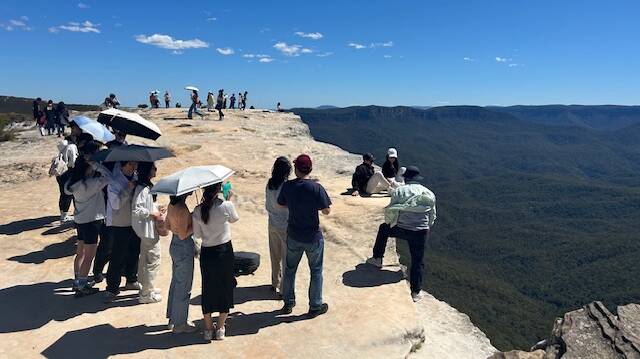
URGENT UPDATE: A new report reveals that Australia’s natural environment contributes an astonishing $510 billion to the country’s economy each year, matching the combined value of the finance and mining sectors. However, the report warns that the federal government is falling short on biodiversity investment, risking the sustainability of this crucial economic pillar.
Released by the environmental group 30 By 30 on October 25, 2023, the findings highlight an urgent need for increased federal funding to protect and sustain the nation’s natural resources. This comes just weeks ahead of the government’s announcement of its emissions target for 2035 under the Paris Agreement.
The report, prepared by Cyan Ventures, quantifies the economic benefits of Australia’s environment and emphasizes the necessity of acknowledging these contributions. Author and managing partner Fraser Thompson stated, “Nature doesn’t send us an invoice… what we can’t measure we often don’t value.” This underscores the critical information gap regarding the value of nature in economic terms.
The study assessed both direct and indirect benefits, pinpointing that the environment provides $138.2 billion annually in direct benefits alone—representing 5.3 percent of Australia’s GDP. The greatest contributions stem from sectors like tourism and water resources. When factoring in indirect benefits such as climate regulation and erosion prevention, the total reaches $510.7 billion.
Despite this substantial contribution, government investment in biodiversity has stagnated at an average of only $476 million per year over the last decade. For 2024, this is projected to rise to $762 million, amounting to a meager 0.1 percent of the national budget. The report suggests increasing environmental funding to 1 percent of the budget, equating to approximately $3.4 billion annually, potentially by reallocating funds from the Fuel Tax Credit scheme and disaster recovery expenditures.
The implications of these findings are profound. Tim Nicol, director at Pew Charitable Trusts, emphasized that Australia’s future economic health is intricately linked to its ecosystems. “We need to start treating investment in nature the same way we treat investment in infrastructure,” he urged.
As climate change poses an escalating threat, reflected in a recent survey by Farmers for Climate Action, where most consider it their biggest concern, the urgency for government action cannot be overstated. The report not only highlights the economic stakes but also serves as a clarion call for immediate action to secure the health of Australia’s natural environment.
In light of these developments, stakeholders and the public alike are watching closely. The need for decisive government action is more pressing than ever. As Australia prepares for significant announcements regarding its climate strategy, the time to invest in nature is now.







